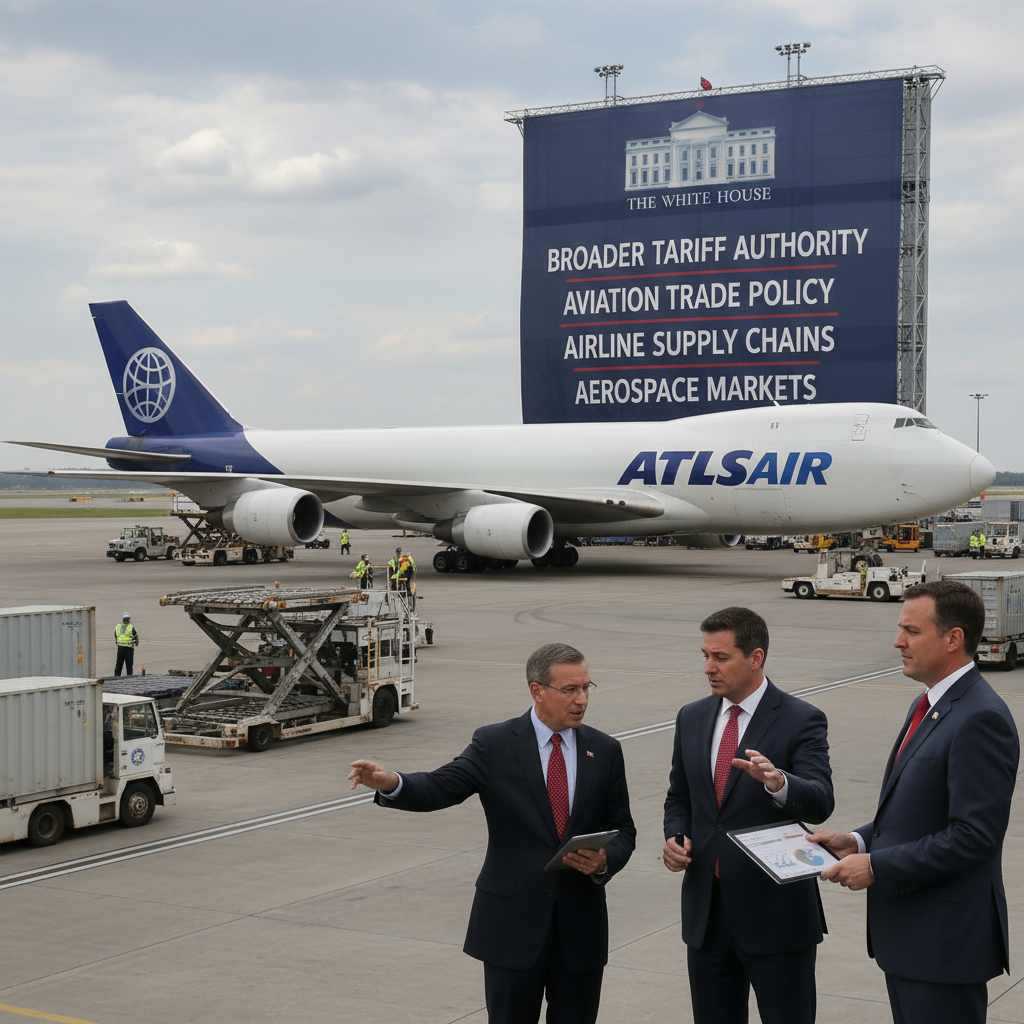Physical Address
304 North Cardinal St.
Dorchester Center, MA 02124
Physical Address
304 North Cardinal St.
Dorchester Center, MA 02124
Global aviation news tracker
Global aviation news tracker

The White House has asked the Supreme Court to allow broader tariff powers that could reshape aviation trade.
The administration submitted a 49‑page legal brief asking the Supreme Court to interpret the International Emergency Economic Powers Act (IEEPA) in a way that would expand the executive branch’s ability to impose aviation tariffs and other trade measures. Officials say the measures would help address trade deficits and curb drug‑trafficking revenue streams, while critics argue the move risks sidelining Congress and unsettling global supply chains.
The case centers on how far the president can go under IEEPA (International Emergency Economic Powers Act) without additional Congressional authorization. If the Court sides with the administration, the ruling could make it easier for the White House to target aviation suppliers, parts and finished aircraft components in response to geopolitical crises or trade disputes.
Airlines, manufacturers and international partners are watching closely. Opponents warn that expanded aviation tariffs could ripple through Western airline and aerospace markets, delaying parts deliveries, increasing costs for carriers, and complicating maintenance schedules. Supporters counter that the stronger executive toolset would provide faster responses to unfair trade practices and illicit finance tied to aviation sectors.
Industry groups and lawmakers are already framing their briefs and statements. Airlines and OEMs (original equipment manufacturers) emphasize the interconnected nature of modern aviation supply chains—where a single parts delay can ground fleets and cost millions—while some national security advocates highlight the need for nimble tools to counter illicit networks that exploit global commerce.
The Supreme Court’s decision will define the balance between executive flexibility and legislative oversight. A ruling in favor of the White House could recalibrate how Washington uses economic tools in aviation‑related disputes; a ruling against it would preserve tighter Congressional checks on tariff authority.